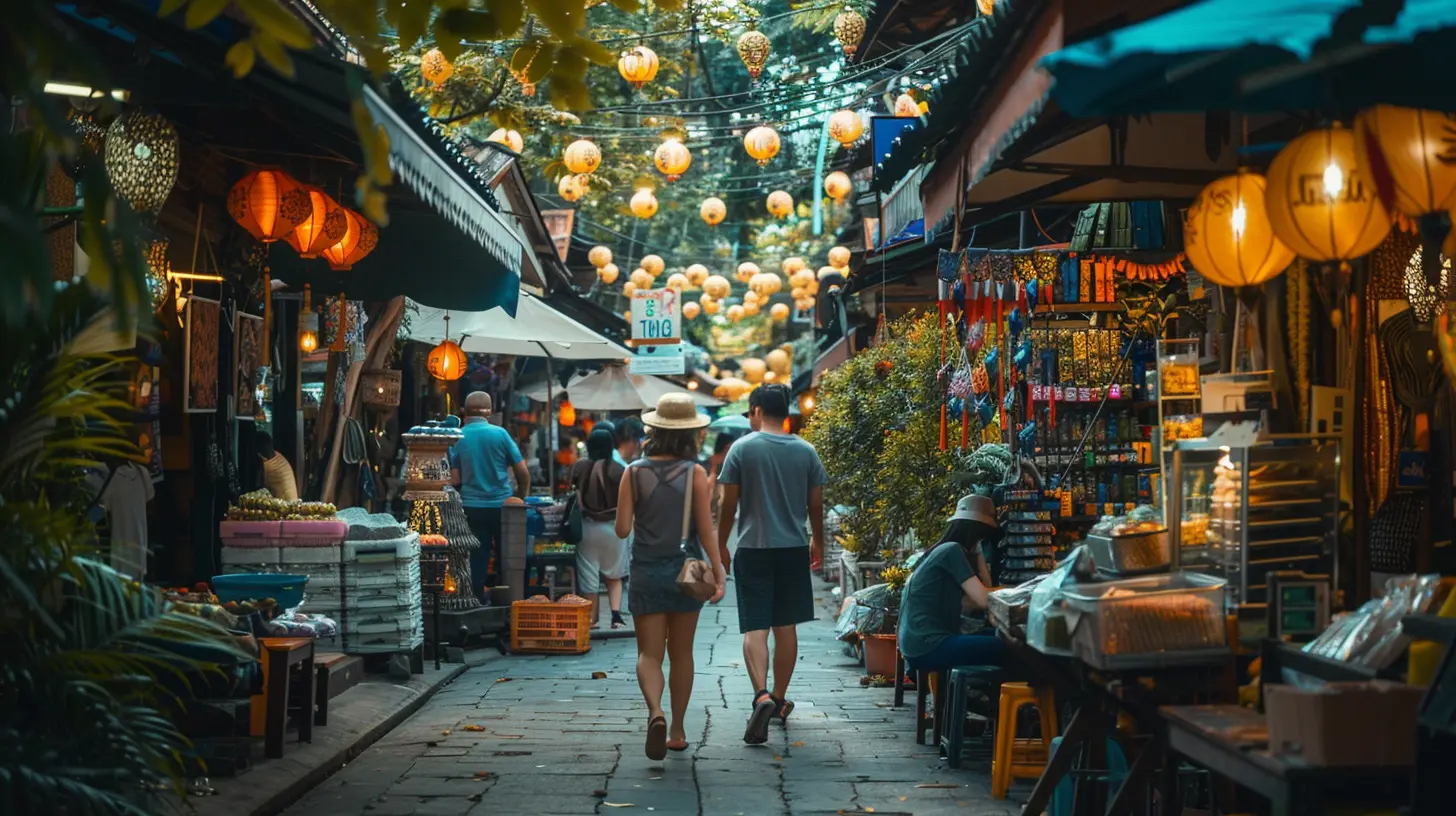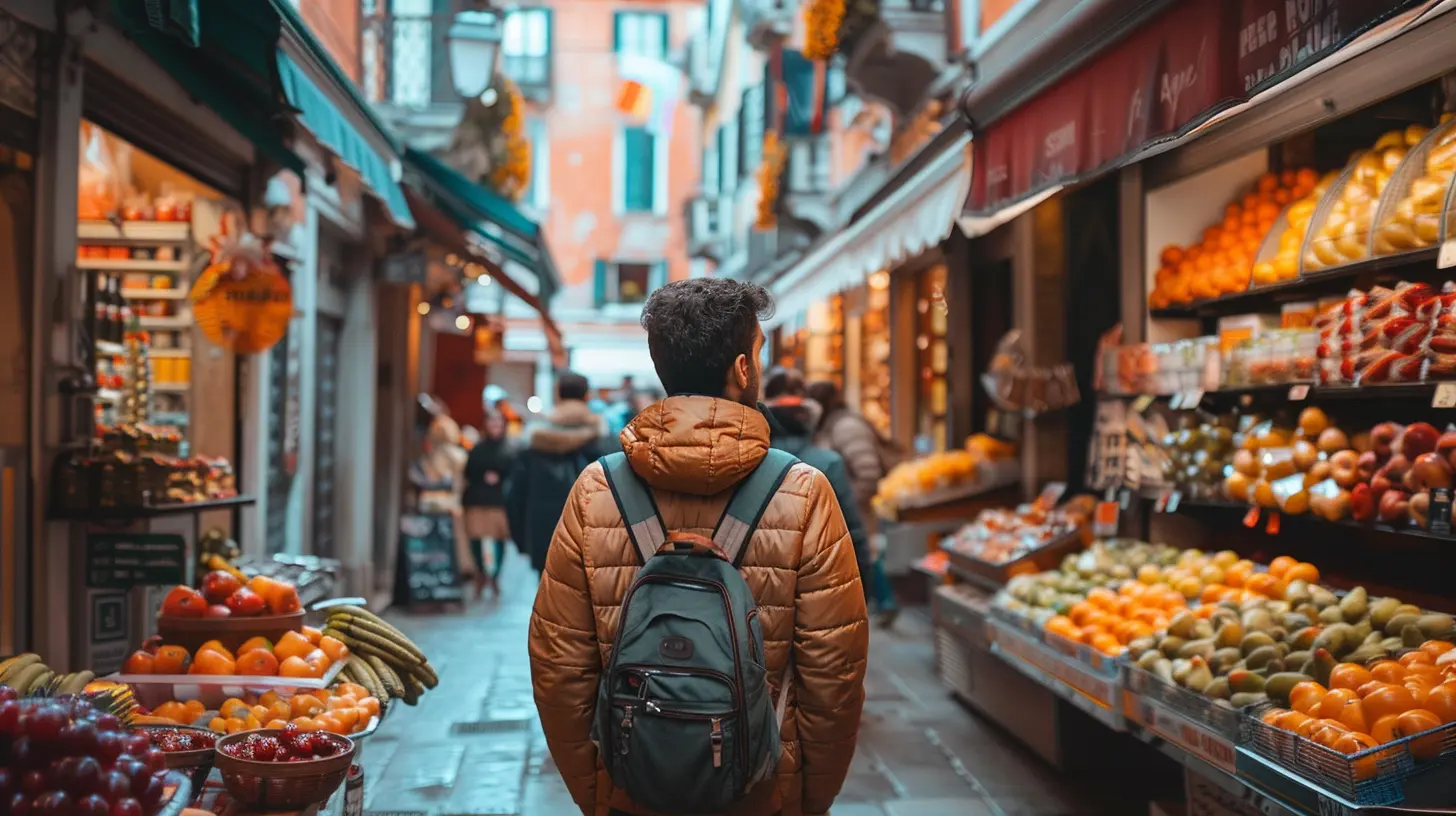How to Stay Scam-Free When Exploring Foreign Markets
25 May 2025
Traveling to a foreign country is an adventure filled with exciting new experiences, vibrant cultures, and, of course, bustling markets overflowing with unique finds. Whether you're looking for handcrafted souvenirs, fresh produce, or one-of-a-kind treasures, markets are a must-visit.
But here’s the catch—tourist markets are also hotspots for scams. From overpriced goods to fake currency, travelers often fall victim to clever con artists. Luckily, with a little preparation and awareness, you can enjoy the thrill of shopping without being taken for a ride.
So, how can you protect yourself while still enjoying the magic of foreign markets? Let's break it down. 
1. Do Your Homework Before You Go
Before setting foot in a foreign market, take some time to research. What are local prices like? What scams are common in that country? The more you know, the harder it will be for someone to take advantage of you.Check Online Reviews & Forums
Websites like TripAdvisor, Reddit, and travel blogs are goldmines of information. Fellow travelers often share their experiences, including the scams they’ve encountered.Understand the Local Currency & Exchange Rates
One of the oldest tricks in the book is to confuse tourists with currency. Know the exchange rate before you buy anything, and always count your change carefully. If possible, use a currency converter app to double-check prices on the spot.
2. Be Wary of Overly Friendly Vendors
Markets thrive on social interactions, and many vendors are genuinely kind and welcoming. But if someone seems too eager to help, be cautious.If It Feels Too Good to Be True, It Probably Is
Vendors offering "special discounts" or throwing in freebies might have a hidden agenda. Sometimes, they hike up the price significantly before giving you that "great deal."Beware of the Hard Sell
Some vendors will try to pressure you into buying something, insisting that it’s the "last one left" or that "prices will go up tomorrow." Don't fall for the urgency tactic—take your time and walk away if needed.
3. Keep Your Money & Valuables Secure
Pickpocketing is a real issue in crowded markets. Scammers often work in teams—one distracts you while the other swipes your wallet.Use a Money Belt or Anti-Theft Bag
A crossbody bag with zippers or a hidden travel pouch can save you from losing your valuables. Keep your money in multiple places, so even if something happens, you won't lose everything.Avoid Flashing Large Sums of Cash
Pulling out a thick wad of bills might attract unwanted attention. Keep some small change easily accessible for quick transactions.
4. Perfect the Art of Haggling Without Getting Hustled
Haggling is part of the cultural experience in many markets, but how do you negotiate without getting ripped off?Start Low, But Be Respectful
A general rule of thumb is to offer about half of the asking price and meet somewhere in the middle. Don't lowball so much that it becomes insulting, though—vendors are making a living, after all.Compare Prices Before Buying
Check out different stalls before making a purchase. If one vendor offers a drastically lower price than the others, it could be a sign of poor quality or a scam.Be Ready to Walk Away
Sellers often lower the price when they see a potential customer leaving. If they don’t, it probably means you've already reached a fair deal.5. Watch Out for Fake Products
Just because something looks authentic doesn’t mean it is. From designer handbags to precious stones, counterfeit goods are everywhere.Look Closely & Ask Questions
Examine stitching, materials, and logos if you're buying branded items. If the deal is too good, ask yourself why.Buy From Reputable Sellers
Markets can be incredible places to find handmade goods, but if you're after local specialties like spices, fabrics, or jewelry, stick to well-known vendors.6. Avoid "Friendly Locals" Offering Shopping Advice
You might encounter locals who insist on taking you to the "best" store for souvenirs. Nine times out of ten, they’re earning a commission by leading you to overpriced shops.If Someone Approaches You, Be Cautious
A stranger suddenly offering to "help" you shop is usually a red flag. Kindly decline and find your own way.Verify Before Trusting Recommendations
If a hotel staff member or taxi driver recommends a store, double-check online reviews to see if it's legit. Some businesses pay for positive reviews, so be discerning.7. Fake Currency & Money Exchange Scams
Currency fraud is a common trick in tourist-heavy spots. Some vendors might slip in a counterfeit bill or shortchange you.Use Official Exchange Offices
Avoid exchanging money at random stalls or with individuals offering "better rates." Stick to banks or authorized exchange offices.Count Your Change & Inspect Bills
Before leaving a transaction, count your change carefully and check for any mismatched or suspicious-looking bills.8. Beware of Distraction Tactics
Scammers often use distractions to catch you off guard.Common Tricks:
- Someone "accidentally" spills something on you, then offers to clean it while an accomplice picks your pockets.- A street performer or fight breaks out, drawing everyone's attention while thieves work the crowd.
- A group of children rushes toward you, overwhelming you with attention while they grab your belongings.
Stay Aware & Keep Moving
If something seems off, trust your gut. Politely decline unsolicited help and keep your hands on your belongings.9. Learn Basic Local Language Phrases
Knowing how to say simple phrases like "How much does this cost?" or "No, thank you" in the local language can be a game-changer. Vendors are less likely to try overcharging someone they think knows the culture.Quick tip: Download a translation app in case you get stuck!
10. Trust Your Instincts & Shop Smart
If something feels sketchy, don't ignore that inner voice telling you to back away. Staying alert, informed, and confident will make it much harder for scammers to target you.Red Flags to Watch For:
- Vendors who refuse to answer basic questions about an item.- Shops that won’t let you inspect merchandise closely.
- Aggressive or pushy sales tactics designed to rush your decision.
A Good Rule of Thumb:
Think twice before making a purchase. Take a moment to assess the situation—if it doesn't feel right, walk away.Final Thoughts
Foreign markets are a fantastic way to soak in local culture, grab some unique souvenirs, and experience the heart of a destination. But not every handshake is trustworthy, and not every bargain is legitimate.By staying informed, keeping your valuables secure, and trusting your instincts, you can enjoy the vibrant chaos of a market without falling victim to scams. After all, travel should be about making unforgettable memories—not losing money to con artists.
So go ahead, dive into those colorful stalls, negotiate like a pro, and shop with confidence. Just remember: stay sharp, stay smart, and stay scam-free!
all images in this post were generated using AI tools
Category:
Travel ScamsAuthor:

Shane Monroe
Discussion
rate this article
3 comments
Beth Hubbard
Trust your gut, not the random vendor!
June 5, 2025 at 5:03 PM

Shane Monroe
Thank you for your comment! Trusting your instincts can be crucial in avoiding scams—always prioritize your gut feelings when assessing vendors.
Franklin McIntosh
Navigating foreign markets can feel like stepping into a labyrinth of colors and sounds, where every turn may hold a hidden truth—or a cunning trap. Arm yourself with awareness, trust your instincts, and let the whispers of experience guide you. Sometimes, the best treasures lie in the lessons learned.
May 26, 2025 at 4:12 PM

Shane Monroe
Thank you for your insightful comment! You're absolutely right—awareness and experience are key to navigating the complexities of foreign markets safely.
Henrietta Horne
Stay vigilant, research, trust instincts.
May 26, 2025 at 4:46 AM

Shane Monroe
Absolutely! Staying vigilant and trusting your instincts are key to navigating foreign markets safely.



